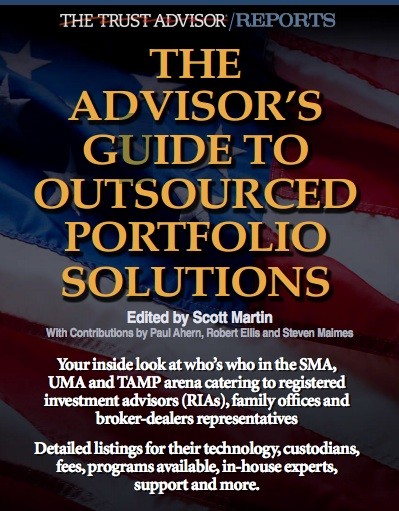11 Top Trust Firms Make the Winners List for Advisor Friendliness in Our New Special Report
Post on: 16 Март, 2015 No Comment

11 Top Trust Firms Make the Winners List for Advisor Friendliness in Our New Special Report
Posted by Scott Martin. Contributor — on February 6th, 2012
Teamwork is key for a whole generation of trust officers who have little motive and less opportunity to cut the advisor out of the game. Unlike football, everybody wins.
After decades of financial advisors and trust companies fighting over client loyalty, a few members of each of faction are realizing that it’s more profitable to work together.
That’s what we found out when we surveyed the industry and learned that the trust companies that actively court long-term relationships with financial advisors are winning big accounts without stealing them from the advisors themselves.
The most advisor-friendly of all made it into our latest special report. (Download it here .)
Theyre an eclectic bunch of organizations, ranging from white-glove institutions to high-tech entrepreneurial upstarts. Pretty much all they have in common is their independence and their eagerness to prove that theyre not a threat to your business.
They don’t have in-house wealth managers hungry for commissions or management fees, so the motive to ingratiate themselves into the lives of your best clients and squeeze you out just isnt there.
They don’t have proprietary investment products to push into trust portfolios. And they don’t even mind if your preferred custodian hangs onto the money.
Get inside the list
Operationally, the most advisor-friendly trust companies out there emphasize flexibility and service.
Whether they’ve been around for a few years or close to a century, every single one is willing to work with any custodian you care to name: TD Ameritrade, Pershing, Schwab, Fidelity.
Between them, just about all the major accounting platforms are on the table, so if you want plug-and-play integration with Schwab, SunGard or anything else, you’re probably going to find it somewhere on the list.
And big surprise: all of the top trust jurisdictions are well represented.
Advisors have been flocking to trust companies that operate in Alaska, Nevada, South Dakota and Delaware not to mention New Mexico in order to get their clients access to the most flexible trust statutes and best tax treatment in the country.
Dynastic trusts, which run for centuries or even forever, are a popular offering. So are asset protection trusts, unitrusts and other specialized vehicles.
On the service side, most have the in-house expertise in place to promise extremely fast turnaround. A trust that could take weeks to set up elsewhere can be up and running in under a day here.
Not willing to hog the ball
The very idea of an “advisor-friendly” trust company might come as a shock to the 85% of advisors worried about losing the assets their clients move move into trust.
For too long, that account “migration” was a painful fact of life for advisors who wanted the best for their clients.
Wealthy clients quite rightly demanded the ability to incorporate trusts into their financial plan to protect their property from taxes, nuisance lawsuits and ultimately mortality itself.
But when advisors located a conventional trust company to serve as corporate trustee, it generally meant handing over about $1 million in assets roughly half the typical high-net-worth investor’s net worth as well as the associated management fees.
The clients were happy. The trust company was overjoyed to get the business and active management rights over the portfolio. And the advisor suffered.
Needless to say, a lot of advisors were less than eager to recommend that their best clients take their assets elsewhere, and so the adoption of trusts lagged.
As a result, according to Fidelity, a full 40% of high-net-worth households have yet to set up trust arrangements, even if it’s in their financial interest to do so.
A shot at a shared win
The trust companies on our list saw that natural resistance as an opportunity to offer advisors a better deal and capture that elusive 40% of the market.
Every single one of them supports an arrangement known as directed trust, in which the client assigns the right to manage the assets to an advisor usually the one he or she is already working with.
The trust company does what it does best: run the trust.
All the bookkeeping, reporting and fiduciary responsibilities remain with the trust company, which earns a nominal fee for the service. If there’s a problem, it’s up to the trust company to deal with.
From the advisor’s point of view, nothing changes. The assets remain on the book of business and keep generating the same fees. With few exceptions, the trust company has no legal right or duty to interfere in the investment choices.
The client is happy to have an advisor looking out for his or her ultimate best interests. The advisor-friendly trust company gets new trust accounts to run. And the advisor doesn’t lose.
Scott Martin. senior editor, The Trust Advisor. Steven Maimes assisted with the research.
More Posts From This Author.














